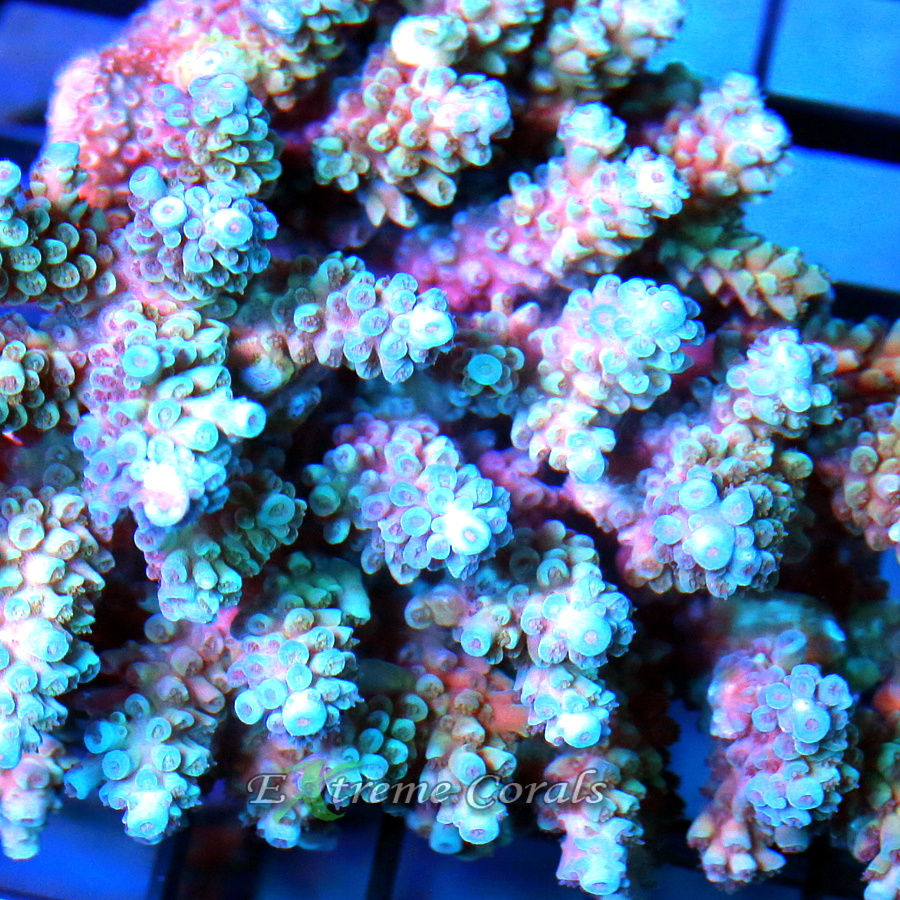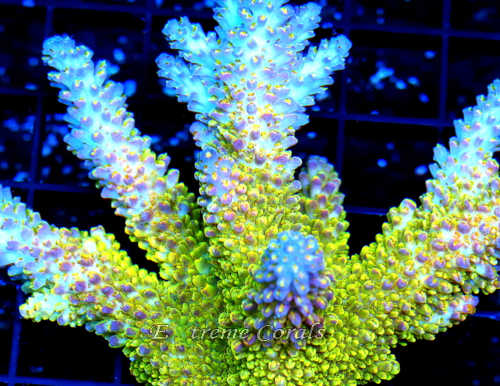Extreme Corals News and Updates
How to care for Acropora in a Reef Tank
Find out how to properly care for your new Acropora Coral with this "how-to" guide on the requirements for healthy Acropora Coral
Read along to find out the Lighting, Water Flow, Feeding, Placement & more when it comes to the care of your new Acropora Coral
by scott Shiles • February 27, 2023
Acropora corals, renowned for their stunning beauty and intricate diversity, are cherished inhabitants of reef tanks
worldwide. With an array of shapes and colors, they captivate the hearts of reef enthusiasts and SPS aficionados alike.
However, their care demands attention to detail and specialized husbandry techniques. In this guide, we explore the
essential aspects of caring for Acropora corals in a reef tank.
Proper Water Parameters:

Acropora corals thrive in stable and pristine water conditions. Maintaining specific parameters is crucial for
their
health and growth:
- Temperature: 76-82°F (24-28°C)
- Salinity: 1.025-1.026
- pH: 8.1-8.4
- Alkalinity: 8-12 dKH
- Calcium: 400-450 ppm
- Magnesium: 1200-1350 ppm
- Nitrate: >5 ppm
- Phosphate: > 0.03 ppm
Regular monitoring and adjustment of these parameters are necessary to ensure optimal conditions for Acropora corals.
Lighting
High-intensity lighting is essential for the photosynthesis and growth of Acropora corals. LED lights provide the
necessary spectrum for their development. It's recommended to maintain lighting for 8-10 hours daily to support
their
health and vibrant coloration.
Water Flow
Adequate water flow is vital for the well-being of Acropora corals. It helps remove waste and deliver essential
nutrients. Aim for a water flow of 10-15 times the tank volume per hour to create optimal conditions for these
corals.
Feeding
While primarily photosynthetic, Acropora corals can benefit from supplemental feeding. Target feeding with
reef-roids or
plankton-based coral foods can enhance growth and coloration, ensuring their nutritional needs are met.
Water Changes
Regular water changes are crucial for maintaining a healthy reef environment, including for Acropora corals.
Performing
a 10-20% water change every two weeks helps remove excess nutrients and replenish trace elements essential for their
growth and vitality.
Placement
Proper placement is key for the thriving of Acropora corals. They require high water flow and intense lighting, so ensure they are positioned in areas that receive both. Stable surfaces, such as rocks, provide the necessary support for their growth.Avoid Overcrowding
Overcrowding can lead to competition among corals for space and nutrients, adversely affecting their health.
Provide
ample space for each Acropora coral to thrive, minimizing stress and promoting optimal growth.
In summary, Acropora corals are exquisite additions to reef tanks, requiring careful attention and specialized
care. By
maintaining stable water parameters, providing adequate lighting and flow, supplementing their diet, performing
regular
water changes, and ensuring proper placement, aquarists can enjoy vibrant and healthy Acropora colonies in their
reef
aquariums.
Additional Information:
Acropora corals belong to the Acroporidae family and are classified as small polyp stony (SPS) corals. The genus
Acropora encompasses a remarkable diversity of species, with at least 149 recognized members, making it the largest
genus within the coral kingdom. These corals are predominantly found in the warm tropical waters of the Indo-Pacific
region, contributing to the region's rich biodiversity and natural beauty.
Despite their initial difficulty, Acropora corals can thrive in captivity with the right conditions and care. Their
desirability, coupled with challenges in cultivation and susceptibility to diseases, contributes to their high
market
value. Conservation efforts are essential to safeguarding these iconic corals for future generations.
overall rating:
my rating:
log in to rate
Please log in to leave a comment.
For more information visit: additional resources

